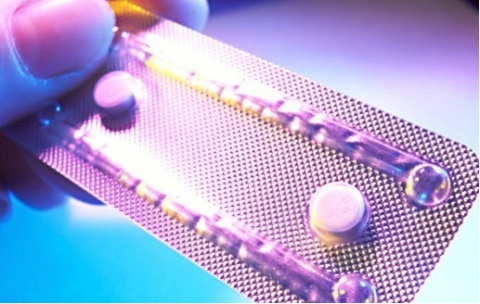What Are Emergency Contraceptive Pills? 
Return of fertility after taking ECPs: No delay. A woman can become pregnant immediately after taking ECPs. Taking ECPs prevents pregnancy only from acts of sex that took place in the 5 days before. They will not protect a woman from pregnancy from acts of sex after she takes ECPs—not even on the next day. To stay protected from pregnancy, women must begin to use another contraceptive method at once.
Protection against sexually transmitted infections (STIs): None
Side Effects
Some users report the following:
– Slight irregular bleeding for 1–2 days after taking ECPs
– Monthly bleeding that starts earlier or later than expected
In the week after taking ECPs:
Known Health Benefits: Help protect against risks of pregnancy
Known Health Risks: None.
Tests and examinations are not necessary for using ECPs. They may be appropriate for other reasons—especially if sex was forced
All women can use ECPs safely and effectively, including women who cannot regularly use hormonal contraceptives. Because of their short-term mode of use, there is no medical condition where ECPs are unsafe for women to use.
Emergency contraceptive pills:
Problems Reported as Side Effects or Problems With Use:
Contact your doctor if you have any of the problems listed above.
1. Do ECPs disrupt an existing pregnancy?
No. ECPs do not work if a woman is already pregnant. When taken before a woman has ovulated, ECPs prevent the release of an egg from the ovary or delay its release by 5 to 7 days. By then, any sperm in the woman’s reproductive tract will have died, since sperm can survive there for only about 5 days.
2. Do ECPs cause birth defects? Will the fetus be harmed if a woman accidentally takes ECPs while she is pregnant?
No. Good evidence shows that ECPs will not cause birth defects and will not otherwise harm the fetus if a woman is already pregnant when she takes ECPs or if ECPs fail to prevent pregnancy.
3. How long do ECPs protect a woman from pregnancy?
Women who take ECPs should understand that they could become pregnant the next time they have sex unless they begin to use another method of contraception at once. Because ECPs delay ovulation in some women, she may be most fertile soon after taking ECPs. If she wants ongoing protection from pregnancy, she must start using another contraceptive method at once.
4. What oral contraceptive pills can be used as ECPs?
Many combined (estrogen-progestin) oral contraceptives and progestinonly pills can be used as ECPs. Any pills containing the hormones used for emergency contraception—levonorgestrel, norgestrel, norethindrone, and these progestins together with estrogen (ethinyl estradiol)—can be used.
5. Is it safe to take 40 or 50 progestin-only pills as ECPs?
Yes. Progestin-only pills contain very small amounts of hormone. Thus, it is necessary to take many pills in order to receive the total ECP dose needed. In contrast, the ECP dosage with combined (estrogenprogestin) oral contraceptives is generally only 2 to 5 pills in each of 2 doses 12 hours apart. Women should not take 40 or 50 combined (estrogen-progestin) oral contraceptive pills as ECPs.
6. Are ECPs safe for women with HIV or AIDS? Can women on antiretroviral therapy safely use ECPs?
Yes. Women with HIV, AIDS, and those on antiretroviral therapy can safely use ECPs.
7. Are ECPs safe for adolescents?
Yes. A study of ECP use among girls 13 to 16 years old found it safe. Furthermore, all of the study participants were able to use ECPs correctly.
8. Can a woman who cannot use combined (estrogen-progestin) oral contraceptives or progestin-only pills as an ongoing method still safely use ECPs?
Yes. This is because ECP treatment is very brief.
9. If ECPs failed to prevent pregnancy, does a woman have a greater chance of that pregnancy being an ectopic pregnancy?
No. To date, no evidence suggests that ECPs increase the risk of ectopic pregnancy. Worldwide studies of progestin-only ECPs, including a United States Food and Drug Administration review, have not found higher rates of ectopic pregnancy after ECPs failed than are found among pregnancies generally.
10. Why give women ECPs before they need them? Won’t that discourage or otherwise affect contraceptive use?
No. Studies of women given ECPs in advance report these findings:
11. Should women use ECPs as a regular method of contraception?
No. Nearly all other contraceptive methods are more effective in preventing pregnancy. A woman who uses ECPs regularly for contraception is more likely to have an unintended pregnancy than a woman who uses another contraceptive regularly. Still, women using other methods of contraception should know about ECPs and how to obtain them if needed—for example, if a condom breaks or a woman misses 3 or more combined oral contraceptive pills.
For a family planning consultation: